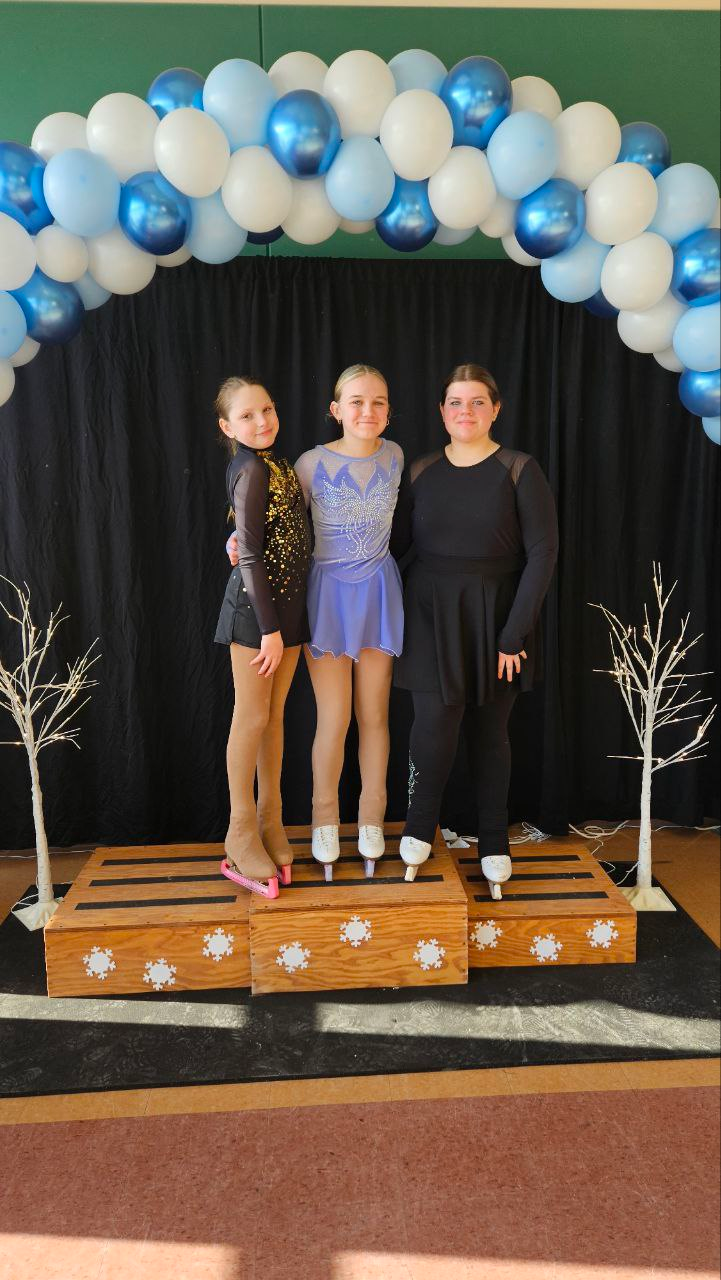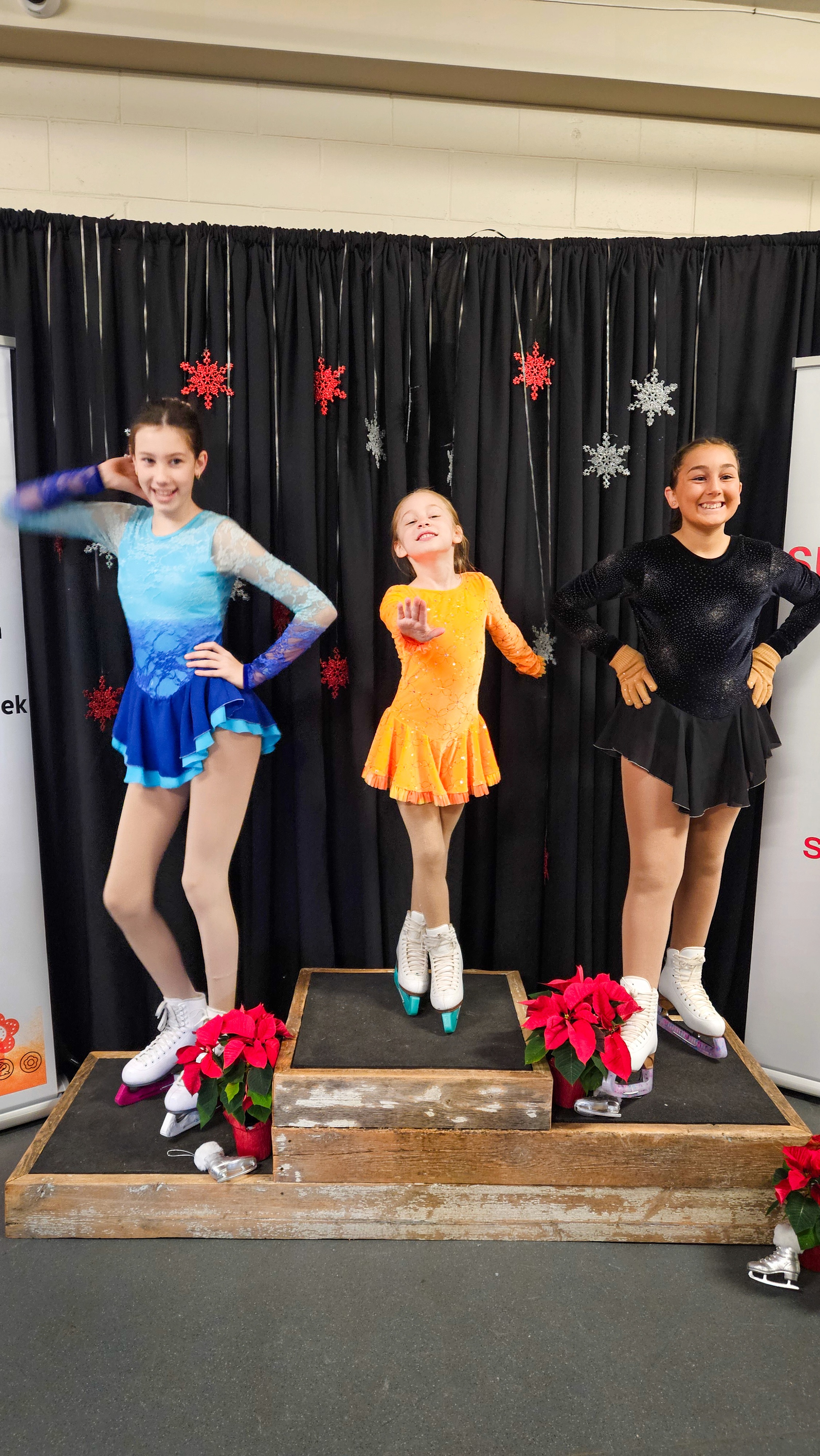STAR 2 - 3:
Did you know that there is a Respect in Sport for Parents?
ESPSC's STAR 2-3 program is a comprehensive 2.25-hour on-ice program held at East St. Paul Arena during the Fall and Winter Sessions. Classes are offered twice a week, aligning with Skate Canada and Sport Canada's Long-Term Development in Sport and Physical Activity Model (LTD). Skaters can choose to skate once a week, but are encouraged to attend both sessions for optimal development.
Eligibility: To join the STAR 2-3 class, skaters must have completed at least one level of STAR 1 testing (in Dance, Skills, or Freeskate) or be recommended by a coach.
Program Details:
-
Location: East St. Paul Arena (Fall/Winter Session)
-
Schedule: Sunday or Thursday, 2.25-hour sessions (Fall/Winter Session)
-
Participation: Skaters can opt to skate once a week, but are encouraged to attend both sessions
On-Ice Instruction: Skaters receive guidance from our NCCP-certified coaches covering various elements of figure skating, including:
-
Ice Dance
-
Skating Skills
-
Free Skating (Jumping and Spinning)
-
Synchronized Skating
Group Lessons: Lessons are offered in a group setting, providing skaters with the opportunity to learn and practice alongside their peers.
-
TEC: In the final 15 minutes of our STAR Skate session, all STAR 2+ Skaters come together to refine their skills with a focus on Turns, Edges, Conditioning, and Improv to elevate their skating performance.
-
Private lessons are not to be taught on TEC, as all skaters have paid for and are expected to participate in the TEC class.
-
Testing and Progression: Skaters continue their STAR testing journey in this program, progressing through the STAR 2-3 assessments in Freeskate, Dance, and Skills. This structured approach helps skaters build on their foundation and advance through the levels systematically. Please note that an assessment fee is associated with these tests. For more information, visit our Fee Information Page.
Adaptive Skating:
Our STAR program is inclusive and welcoming to skaters of all abilities. We proudly support athletes with cognitive and physical disabilities or impairments who can participate in Special Olympics in either recreational or competitive skating. The program is designed to accommodate individual needs, ensuring every skater can develop their skills in a supportive environment. The STAR 1-5 programs are all open to adaptive skaters, with elements tailored to their unique needs. Our coaches are experienced in working with athletes of varying abilities, and we strive to create a positive and encouraging atmosphere for all participants.
Through Adaptive Skating, athletes develop sports skills, social skills, and self-esteem to assist them in becoming an involved member of the community. It promotes an active lifestyle and quality of life for persons with intellectual disabilities through participation in sports.
Adaptive Skating Competition:
Special Olympics Skating provides athletes with intellectual and physical disabilities the opportunity to compete in invitational, interclub, and international competitions.
-
SINGLES: Level 1 - 6
-
DANCE (Solo & Pattern Ice Dance): Level 1 - 6
-
Pairs FreeSkate: Level 1 - 3
-
Adult Singles: Master 1/2 - 3/4
For detailed competition information, please refer to the Special Olympics Competition Page.
-
Ice Fees: Included in the program registration fee
-
Coaching Fees: Divided among the registered skaters and invoiced by the coach at the end of each month
-
Assessment Fees: The STAR assessment fee is paid at the time of testing for every assessment.
- Competition Fees: Skate Canada has a fee for each event (Programs, Elements, Improv, Team, etc.). Additionally, there is a coaching fee for the time spent with the skater at the event, which varies per coach. This fee can include charges for time, mileage, hotels, meals, etc., depending on what the coach charges for.
Join us and take the first step toward your skating dreams! ⛸️✨
For examples of equipment, how to wear it, and recommendations, refer to our Equipment Information playlist!
-
Sharpening: Getting figure skates sharpened at a local figure skate-specific sharpener is recommended. Most retail sharpeners are not trained in the specifics of figure skate blades. Please discuss with your club coach for further details. The prices at the local sharpener recommended by club coaches are $15.
- When to Sharpen Skates: It is recommended to get skates sharpened approximately every 15-20 hours of skating.
STAR 2 - 3 Competition:
STAR Skate offers skaters the opportunity to compete at invitational and interclub competitions.
- Elements: STAR 2, 3
- Programs: STAR 2, 3
- Showcase: Level 1
- Team Events: STAR 2, 3
- Improv: Level 1
- Ice Dance Pairs: STAR 2, 3
- Ice Dance Solo: STAR 2, 3
- Pairs FreeSkate: STAR 3
- Synchro: STAR 3
Participating in STAR Skate competitions provides skaters with valuable experience and recognition, helping them grow and excel in their skating journey. ⛸️✨
For more information visit STAR Skate Competitions Page.
To achieve success on the ice, all skaters are encouraged to engage in off-ice training. Coaches may assign specific exercises for skaters to perform on a weekly basis and before on-ice training sessions. These exercises are designed to enhance overall performance, build strength, and improve flexibility.
Skaters are strongly encouraged to complete off-ice warm-ups prior to practices. These warm-ups help to prepare their bodies, increase blood flow to the muscles, and reduce the risk of injury. A proper warm-up routine ensures that skaters are physically ready for the demands of on-ice training sessions. Additionally, performing off-ice warm-ups before competitions is crucial, as it helps skaters to replicate their practice performance during events.
Focus Areas for Off-Ice Training:
- Stretching/Flexibility: Enhances range of motion and prevents injuries
- Off-Ice Jumps: Improves jump technique and strength
- Off-Ice Spins: Using a spinner off-ice improves spin technique, balance, and control
- Strength Training (Body): Builds overall muscle strength and endurance
- Strength Training (Core): Strengthens the core muscles, which are essential for balance and stability
- Agility/Plyometrics: Increases agility, speed, and explosive power
- Expression/Dance: Enhances artistic expression and performance quality on the ice
ESPSC currently does not have off-ice programs running alongside the fall/winter and spring sessions but offers one-hour long sessions during the summer program. To achieve maximum success with cross-training and limit injuries, please discuss off-ice training exercises or classes with your coach. Proper warm-up and cool-down routines, as well as injury prevention techniques, should also be part of your off-ice training plan.
Basic off-ice training ideas:







